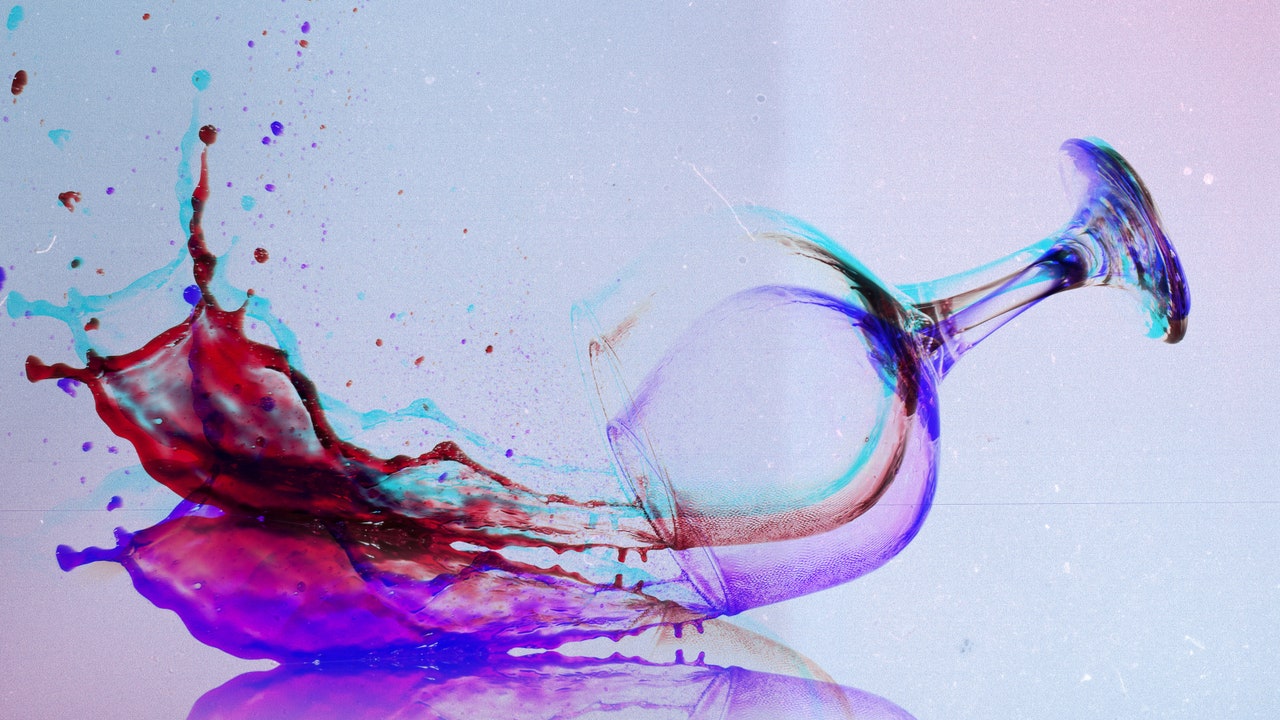Okay, Maybe It’s Time to Quit Drinking

[ad_1]
On February 15, 2020, Meg Porter* celebrated her 35th birthday in New York City with her girlfriends. The next morning, she had her usual Sunday hangover, but dragged herself to the gym. By the time she met her sister for brunch, she was ready for her tried-and-tested remedy—a Bloody Mary. “I was just a normal young woman, enjoying city life,” Porter says.
Less than a month later, on March 11, the World Health Organization (WHO) declared the COVID-19 outbreak a pandemic, and it wasn’t long before NYC went into lockdown. No bars, no gym, no carefree hungover brunches. “My social life—my *life—*stopped,” Porter says. But her drinking didn’t. In fact, her weekly alcohol intake increased rapidly. “I felt isolated, and was worried about everything,” she says. “Wine was my go-to, and because I was now working from home, I found myself reaching for the bottle earlier and earlier.”
Porter is one of millions of people who turned to booze to cope with the stress and uncertainty of the pandemic, and this itself became a public health issue. After stats were released revealing the extent of the collective boozing (online alcohol sales increased 262% from 2019), the WHO warned that alcohol use during the pandemic may potentially exacerbate health concerns and risk-taking behaviors.
According to research published in JAMA Network Open in September 2020, people drank more frequently during the early stages of the pandemic, compared to their typical drinking habits from a year earlier. For women in particular, they drank more heavily and experienced more adverse effects.
In Glasgow, Scotland, the start of lockdown coincided with one year of almost complete sobriety for Jane Bailey*, 46. “I stopped drinking in April 2019, after going through a difficult separation and seeking a little too much comfort in wine,” she says. “When my children started to notice and comment on my drinking, I knew I had to stop. I had to tackle my problems and set a better example for my kids.”
Bailey had entered 2020 with a newfound enthusiasm for life. “It was going to be my year,” she says. “I had a new job and a new flat—the future was looking bright. Then lockdown happened. Work was a worry, nobody could visit my new home, I couldn’t share my new attitude with the world. I felt invisible. I only had TV and social media for company and suddenly every show featured a large glass of wine and every Facebook post was a meme encouraging me to drink excessively. I guess I felt: why not?”
Alcohol and your anxiety
It’s no secret that alcohol is not exactly good for you. A large body of research has established an association between alcohol consumption and a variety of negative physical health outcomes, including heart disease, liver disease, lung disease, and high blood pressure. But it’s not just the physical: The relationship between alcohol and mental health has become apparent—and concerning—during the pandemic.
Drinking to ease your stress (which there’s no shortage of these days) is a vicious cycle. Alcohol is often used to cope with anxiety, depression, loneliness, and physical isolation—all of which have increased during the COVID-19 era. But alcohol use can actually make anxiety and depression worse. If you’re already living with mental illness (that’s nearly 1 in 5 of us, according to the National Institute of Mental Health), the risk is greater.
People with anxiety and depression are perhaps unsurprisingly more likely to report drinking more alcohol during the pandemic than those without mental health challenges, according to a study published in January in Preventive Medicine. “When we looked at the data, we saw that women were less likely than men to be drinkers,” says Ralph J. DiClemente, Ph.D., from the department of social and behavioral sciences at New York University’s School of Global Public Health. “However, among drinkers, women were more likely to report drinking more than men.”
[ad_2]
Source link




